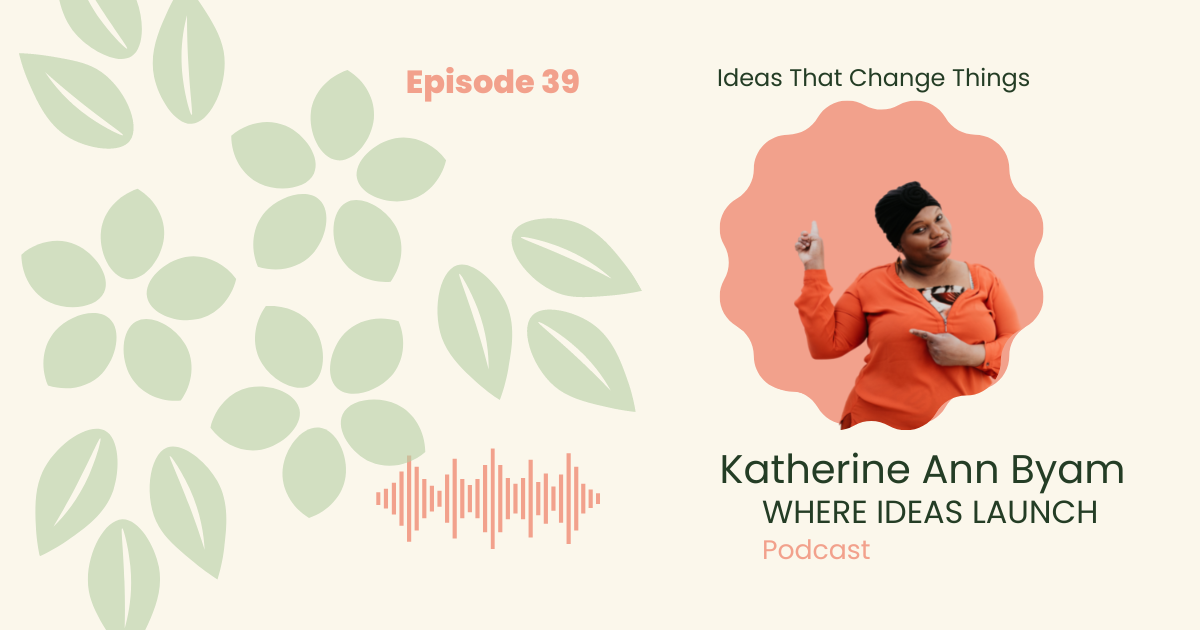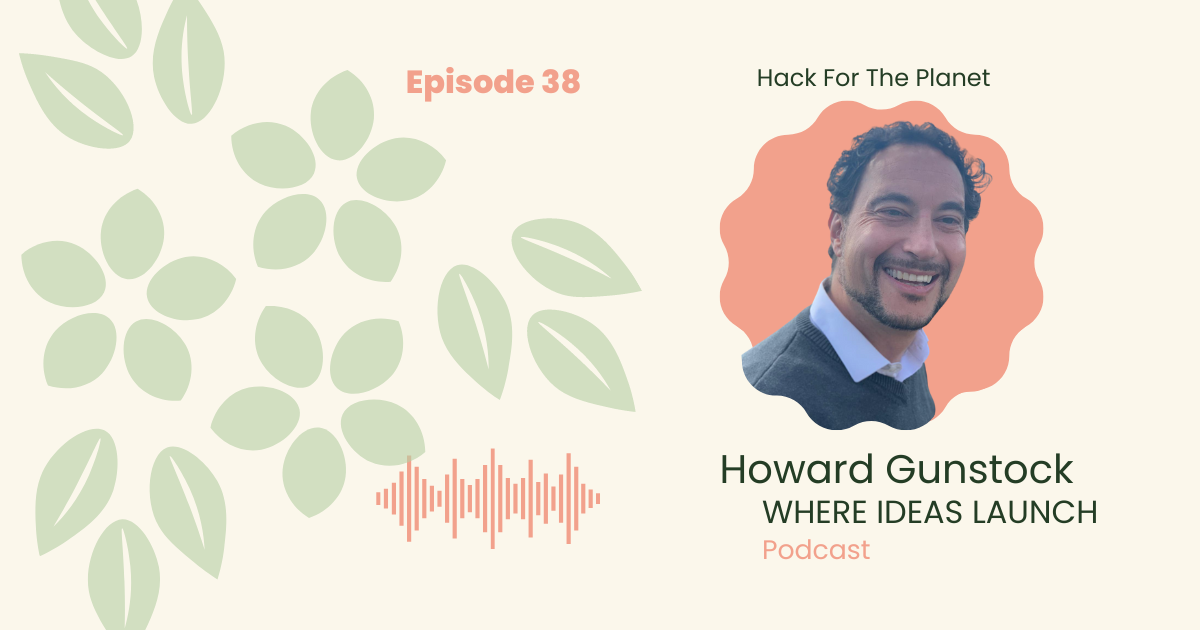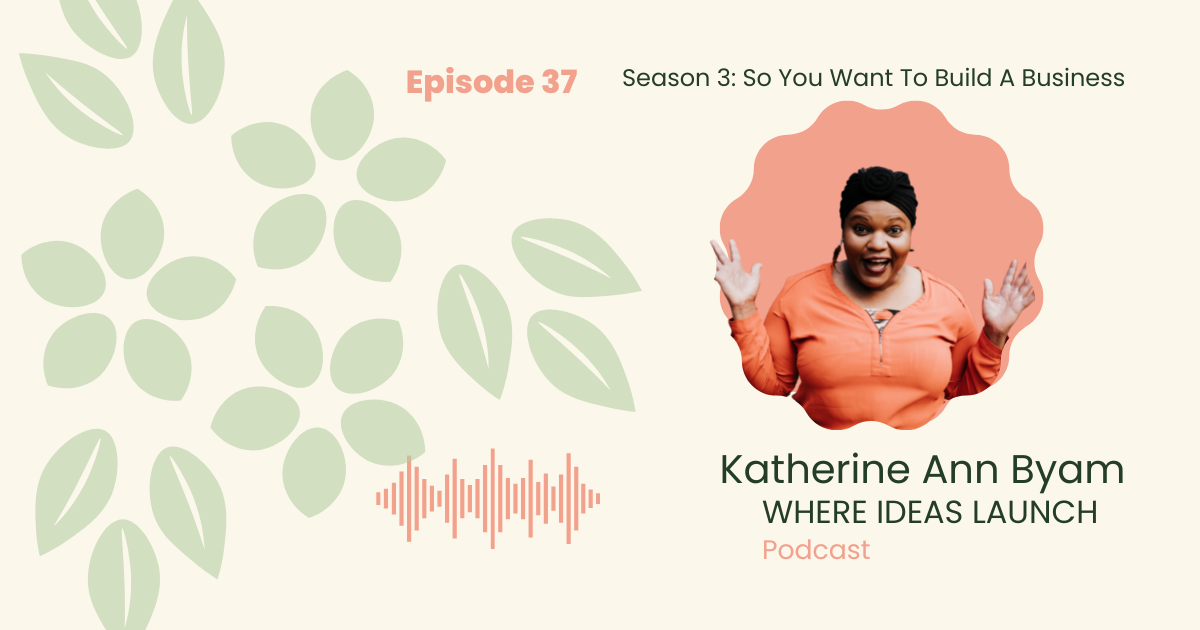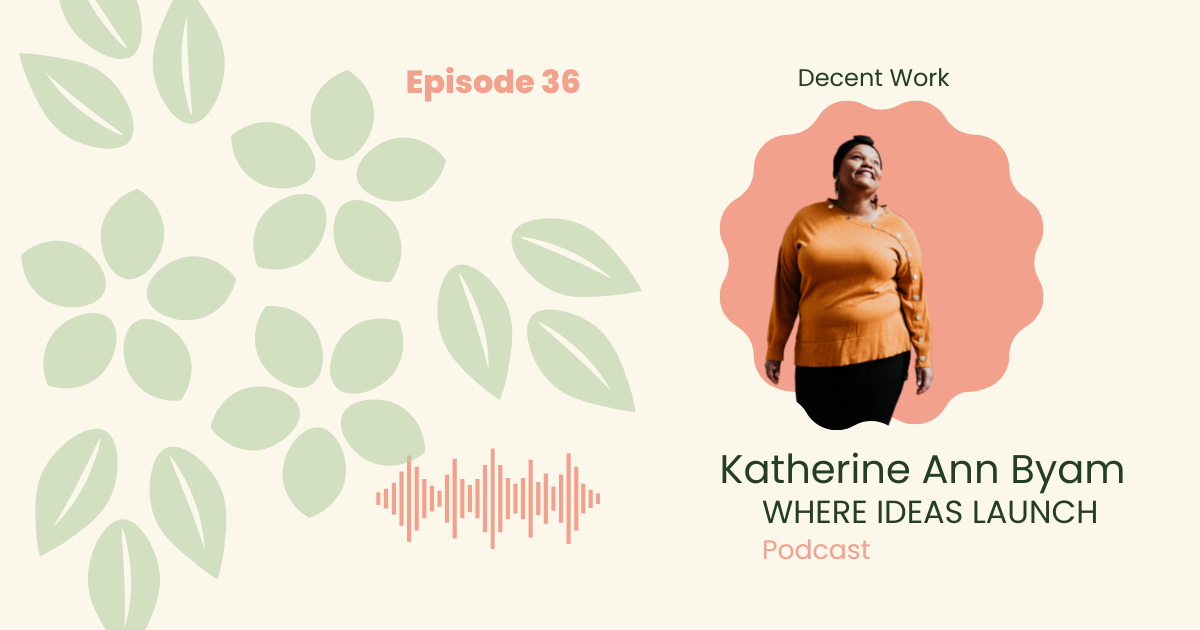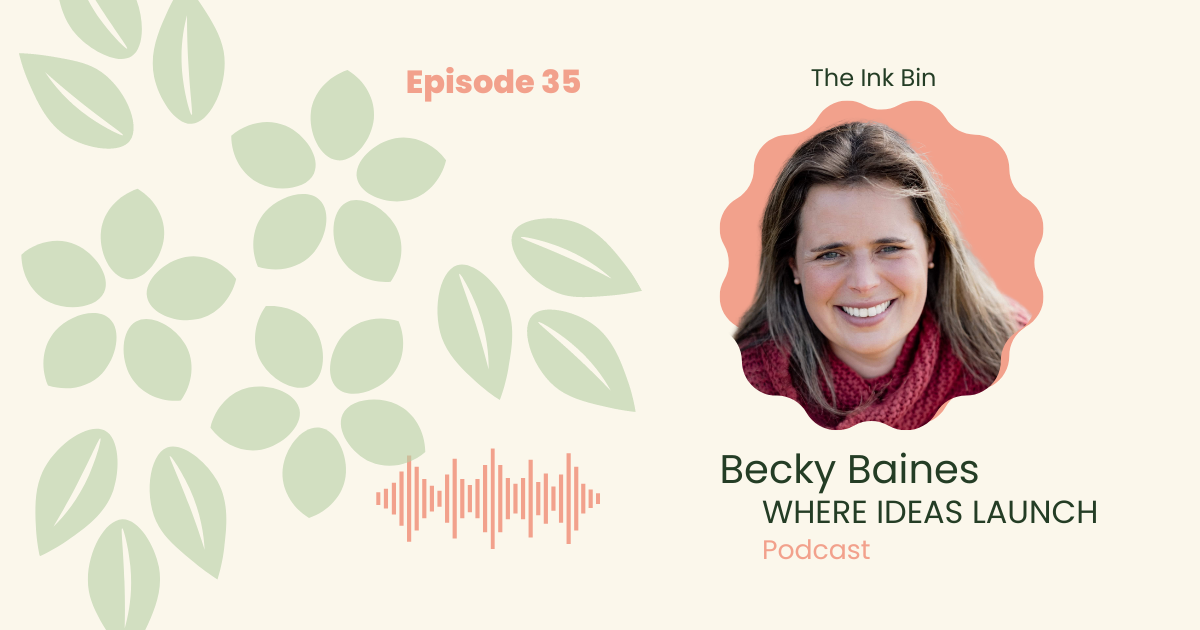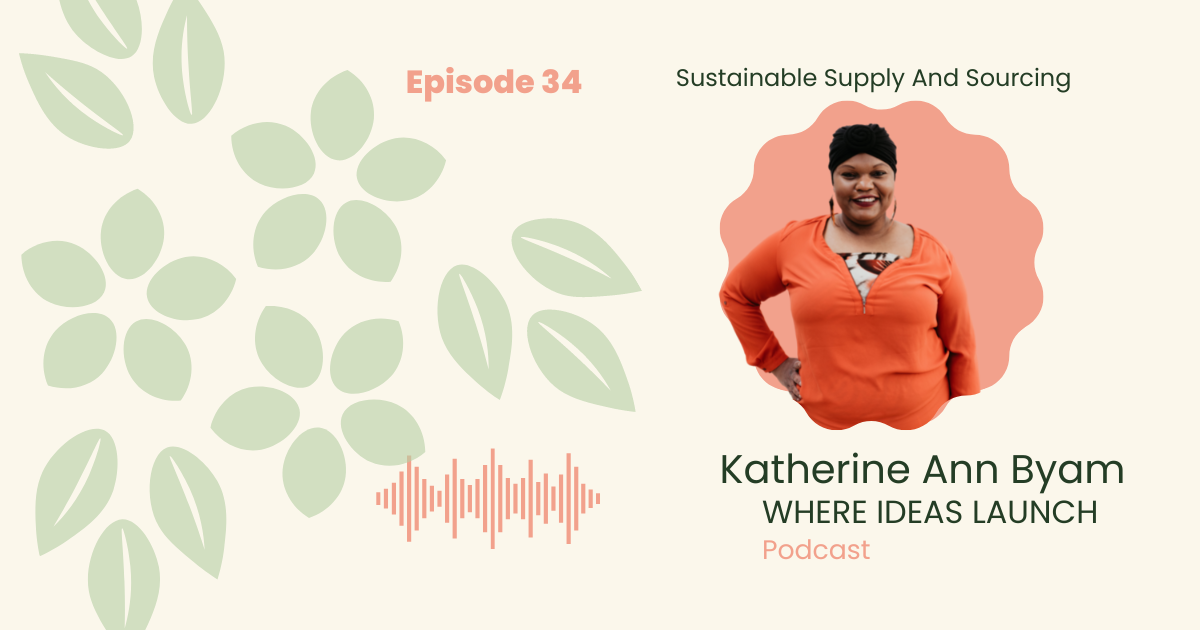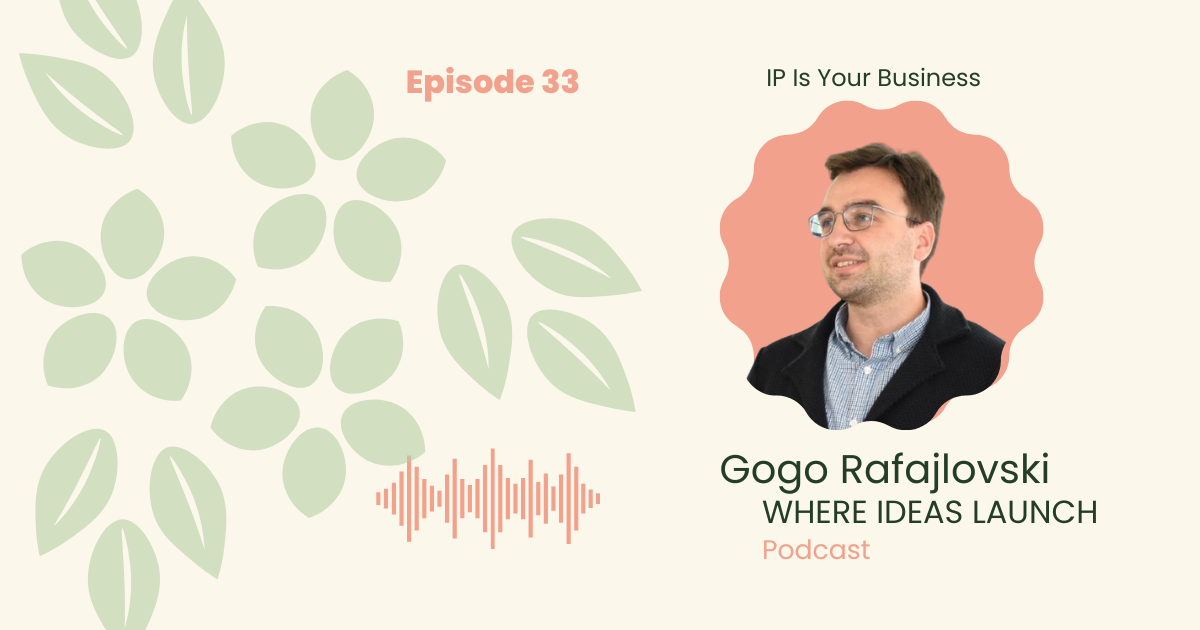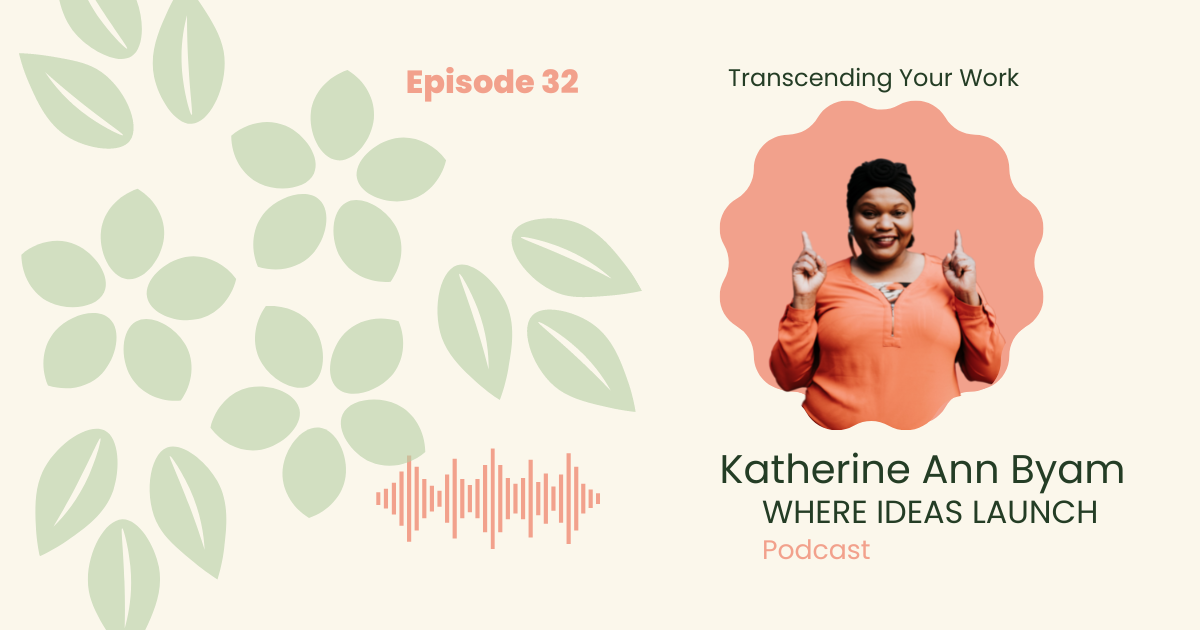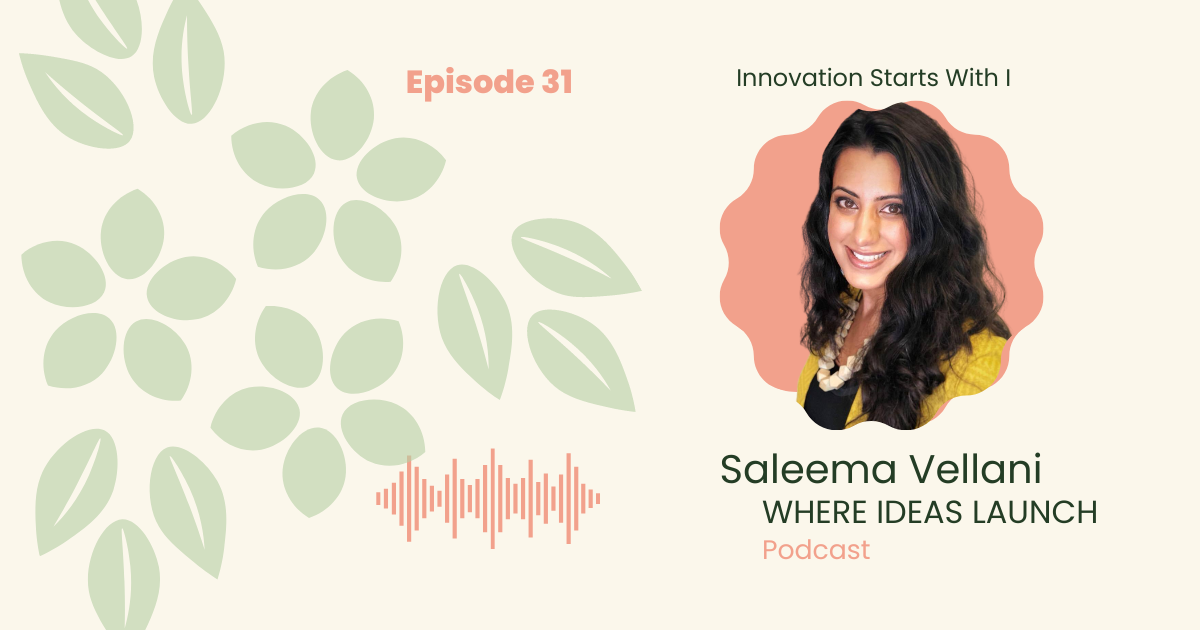040 The Blockchain Artisan
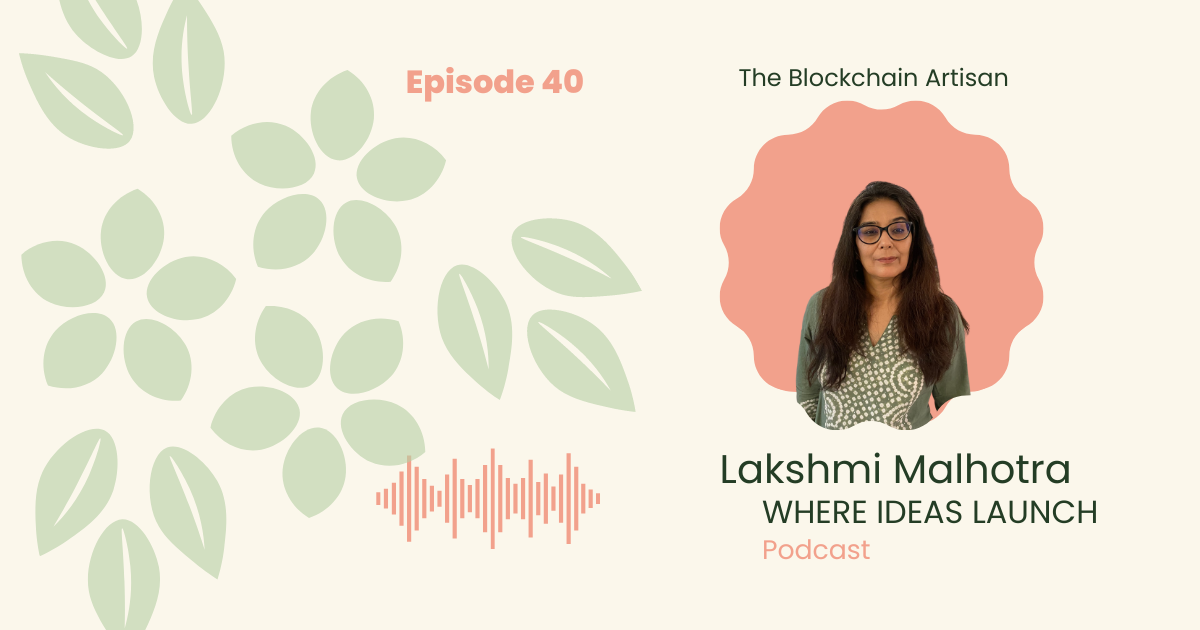
About this Episode
Lakshmi Malhotra is the founder of Resham Dor. Her vision is to revive dying handloom clusters and establish artisans as custodians of their craft across India. She is currently working on the revival of Kharad rugs. This is a diminishing craft practiced by only two families in Gudhrat India.
In this episode, we explore the artisanal Journey in India, and how she intends to use Blockchain to help revive artisanal craft as luxury items.
Subscribe to Where Ideas Launch
Episode Transcript
Katherine Ann Byam 0:03
Lakshmi Malhotra is the founder of Resham Dor. Her vision is to revive dying handloom clusters and establish artisans as custodians of that craft across India. She's currently working on the revival of Kharad rugs. This is a diminishing craft practice by only two families in the Gujarat region of India. Lakshmi, it's such a pleasure to have you. Welcome to Where Ideas Launch.
Lakshmi Malhotra 0:50
Thanks for the opportunity to be a part of this podcast.
Katherine Ann Byam 0:54
What is Kharad really and why are you so passionate about saving this type of skill?
Lakshmi Malhotra 1:01
Actually it is quite an interesting story, Katherine and the word Kharad actually comes from a Sindhi word, which is a dialect in that part of the region, which means rock. And the artisan community originally settled in Sindh, which is now in Pakistan. That's where the word came from. So the Kharad rugs were traditionally made out of camel wool and goat hair. And these were woven on a pit loom. And these were basically used by the nomadic community when they would travel all across to keep them warm. That's why Kharad was very simple in its soul, black and white monochrome designs, which was undyed sheep wool and camel wool. And that's where Kharad came from. What happened post migration was that the community moved to a place called Quran, which is the last village between India's border with Pakistan. And after that, considering the craft is very labour-intensive, it was quite expensive as well. And the local market actually was not very interested in the craft. And slowly the families that used to do this started to dwindle down. And now there are only two families.
Katherine Ann Byam 2:24
Tell us a bit about your background and how you found this course.
Lakshmi Malhotra 2:30
I have worked for the corporate for about two decades. For about 20 years, I've worked as an IT professional in a lot of agencies all across the world. However, hand loom is an area which is something very close to my heart. As I was growing up, one of my favourite pastimes was to basically visit these handloom fairs that we had in a city where we would have artisans and weavers coming from all across India, and I would buy handloom fabric from them, get it embroidered or do some embellishments on it, and get it stitched.
I think my love affair with hand looms began there. And initially, it was something that was very personal to me, wherein I would buy hand looms for my own personal use. But as I started going to these handloom fairs very regularly, the weavers got to know me as a person who loves hand looms. And they started sharing their personal stories with me and they talked about the challenges that they're facing with people not wanting to buy handmade, wanting to buy the cheapest stuff, and of them moving away from their original designs to create something which people would buy.
I think I started relating to their stories in terms of the challenges that they have and how difficult it is for them to survive. So about a few years back, I started an initiative again, under the name of Resham Dor to basically create awareness about the hand looms and crafts that we have all across the world. But last year during the pandemic, I realised that I need to basically work full time if I really want to make a difference at the ground level.
That's how I moved into Resham Dor full time. Now in terms of how I found Kharad, I remember I was talking to a craft lover who was also from Gujarat. I was brought up in Ahmadabad which is in Gujarat, and she was talking about Kharad considering I'm from Gujarat, I know all the arts and crafts that come in from Gujarat. But Kharad is something that I was not aware about at all. And it was very surprising that I did not know about this craft and about two years back, I started researching about Kharad because I felt that as a handloom lover, or as a craft lover, and as well as coming from Gujarat, I should know about all the crafts from Gujarat.
When I started researching about these rugs a couple of years back, I was fascinated by how beautiful these rugs were, how they were made, the story of how it is rooted into sustainability, right starting from local people to using natural dyes to basically weaving on a pit loom. I was really very fascinated with the weaves and the beauty of it. And I remember searching for the master craftsman who creates these rugs. I reached out to him and he actually shared a story in terms of how there were 10 families who used to practice this craft 10 years back, and now they've moved away to other professions, because the demand for this rug was lessened. And for these two families to also survive, it's so difficult.
Katherine Ann Byam 6:05
You know, when I talk to people about this topic of sustainability, we often have this debate about, "Is sustainability something that sits outside or does it sit throughout the making of the thing?" And this is in the ethos of everything that the rug is from the point of design up to the point of finishing and ready for sale? What are your thoughts on the opportunities and the sort of hidden wealth in this area of hand loomed skill? Because I think, as we talk about sustainability, the next side of the story is about the human side of it - about these skills and about the fact that we have sort of built a world that trivialised and made irrelevant almost these real important craft skills in exchange for things that are cheap and create waste.
Lakshmi Malhotra 6:54
As far as how the loom and handicraft industry in India goes, we have a very rich heritage of craft. And I think if I look at the techniques or the way the craft and handloom is being made in India, it is rooted in sustainability. What has happened post the pandemic or in the last few years is that sustainability has become at the core. Customers have become more conscious about the production process and about how sustainable a garment is. Most of the crafts, not only in India, but all across the world were rooted in sustainability because the means were limited at that time. And people used to take everything from whatever was available in the ecosystem to make things for their daily needs. And I think if we go back to that, we will be able to ensure that we are sustainable. So I see a lot of opportunities.
Katherine Ann Byam 7:53
So we know that blockchain technology is being used now in the art world. What are your thoughts on how this can benefit the artisans?
Lakshmi Malhotra 8:02
So I think there has been a lot of research on blockchain. And initially though blockchain started from the financial industry and focused around bitcoins and all that, now they are looking at how blockchain could be applied to other industries as well. Now, when I look at blockchain and based upon considering that I come from a technology background, I'm always looking at ways how technology can be used to make lives better, and especially with handloom being an area of which which is an area of interest, I did a detailed study on how blockchain could help the handloom and craft industry.
I think there are a few challenges that the craft industry is facing all across the world. One is product authentication. There are a lot of copies available in the market and the consumer never even knows how, whether a product is coming from an authentic source or whether it is really coming from a craftsman as the brand claims. The other thing is intellectual property protection. If we look at artisan communities all across the world, I believe that the art and the craft is the cultural intellectual property of the community. And if anybody tries to use that intellectual property, then there has to be credit that is given to the artisans.
There is no way of doing that right now. And there are a lot of brands which basically just use a particular art without giving any credit or compensation to the artisans. And the third thing is that there are a lot of traditional crafts that are dying today, and along with that the knowledge of the traditional techniques is getting lost. So there is no standard database for knowledge protection. And I think that blockchain can really be helpful here.
The reason being that blockchain is a technology which is immutable. Immutable means anything that goes into the database cannot be changed by anybody else. It can basically change the face of the craft industry or even luxury goods as well. Because at every stage in the supply chain, if there is information that goes into the blockchain, which says where the raw material came from, who were the people who dyed it, with what material, who were the artisans who weaved it, who packaged it, and how did it reach the consumer, and if all of that is available to the consumer through a scan of a QR code, it will become very powerful.
So I think blockchain as we go forward, there are a lot of pilots that are happening all across the world in terms of how blockchain can be used for the fashion industry, and especially for the handloom industry. And I personally believe that it can change the face of the industry, if we are able to deploy it as we go forward.
Katherine Ann Byam 11:07
Absolutely.. So what's next for Resham Dor? And how can my listeners support you,
Lakshmi Malhotra 11:11
We are just a startup. We are a very new company right now. We just started The Kharad Revival Project, six months back. So our focus for this year is that currently there are two families that are practising this craft. By the end of the year, if we can make it to five, if we can get three more families back into the craft by creating the right market linkages and demand, that would be wonderful.
And a couple of two years down the line, we basically make this artisan community self sustainable, so that they can ensure that the Kharad craft is available for generations to come. In terms of how the listeners can support, they could support by creating awareness about this craft and know more about this craft. They could also talk about how sustainable this craft is. And last but not the least, if the listeners can help us by buying these rugs, these are heirlooms, and these are a beautiful legacy that you can keep in your home. So if the listeners can help by supporting by buying a rug that would really be helpful.
Katherine Ann Byam 12:29
And what advice would you give to someone who's getting started in an area of preserving history and preserving craft and skills? What would you tell them?
Lakshmi Malhotra 12:40
Though I'm very new in the entrepreneurship world, I will share my experience in the past few months. I think the first thing that I learned when I moved into starting my own company was when we work in the corporate world, everything is very structured, right? There are well-defined processes. However, when you move into entrepreneurship, the first thing is you have to do everything on your own now. So it was a difficult task for me. But what I learned in the last six months is that don't hesitate to reach out. Don't hesitate to ask for help.
As a new business, there are a lot of times when people don't respond to you. You get a lot of refusals. I remember that when I reached out to a few influencers to talk about what we are doing and if they could talk about my brand, even after a lot of follow ups, I did not get a response. But what I realised is if your brand has the right ethics, then it will turn around you just have to continue to follow up and now one of the recent successes that I had was that I reached out to a lady who is a textile revivalist and she is a part of the royal family, again, from Gujarat.
I reached out to her and I told her about Resham Dor. And I was not sure whether she would respond to me or whether she would be happy to speak about Resham Dor. She is very active on Instagram and a lot of social media and surprisingly, she was graceful enough to actually see that, "Oh, wow, you're doing such a wonderful thing. And I am happy to talk about Resham Dor.” What is needed is persistence, continuous follow-up, and especially when you are running a new business.
Katherine Ann Byam 14:34
Absolutely. Yeah, absolutely. Yes. So right there.
Katherine Ann Byam 14:40
Thank you so much for sharing this important message with us. I think Resham door is doing an admirable piece of work. I think that the future of this type of skill is in the luxury market. And we need to recognise that. I mean this is as precious as the artists are, you know, and when you're at a stage where only a couple of families can do something, this is something special. And this is something that you really want to preserve. So thank you so much for coming to share that story with us and my listeners will be able to access all of your information on the show notes. So thanks so much for coming, Lakshmi.
